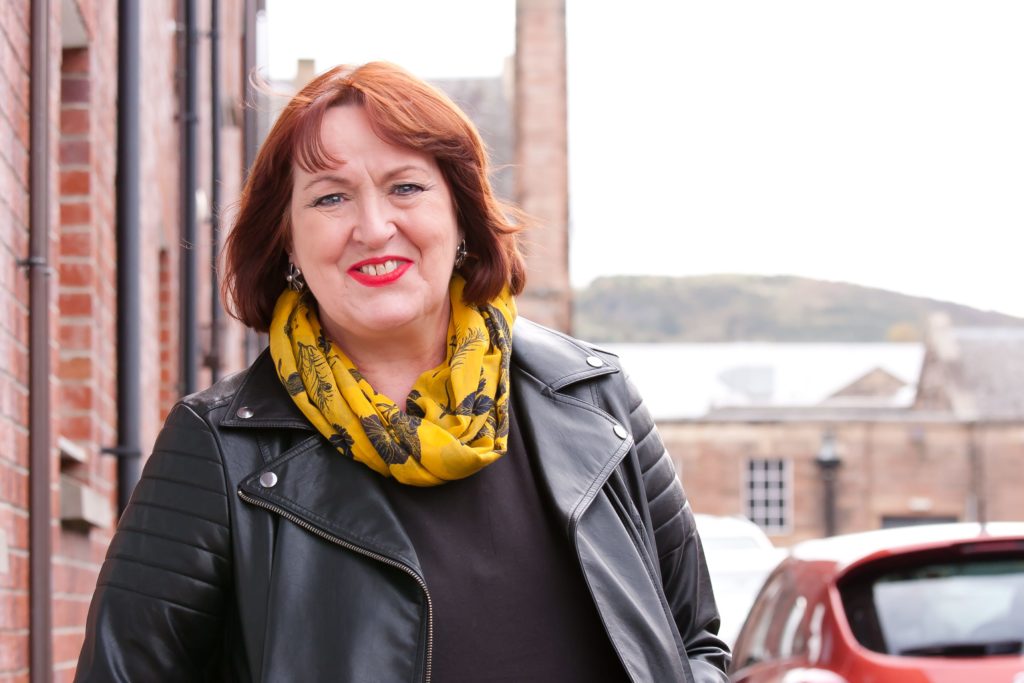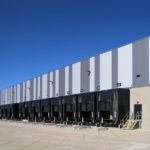Sector - Health & Safety
Construction Industry is Ours to Shape

Lesley McLeod is Chief Executive Officer at The Association for Project Safety, in this feature she writes about how changes need to be made in the construction industry as a result of the COVID-19 pandemic
I used to work in an office but, since March, that has been my kitchen table with daily calls to check in on colleagues for both work and welfare. The Association for Project Safety [APS] has stayed out to help out.
I am also used to living alone and I am not trying to work on a complex building project or with a big firm, far less doing any – or all – of that while juggling responsibilities for shielding relatives or truculent schoolchildren.
As a result – and because I am not one for crowds and mass-gatherings – the limitations of lock-down have not presented me with any particular problems. However, as the country makes a halting, hiccoughing return to work and play, there are lessons for us all.
There is, and will remain, a need for greater planning, care and control if we are to find our way in the new normal. We must recognise how our actions have an impact and that behaving responsibly is a vital part in keeping everyone safe. The need to think before you act has not gone away: Covid-19 is dampened and not yet defeated.
But other little disasters still happen daily in construction. Some have no adverse consequences. Others echo for years through the lives of construction workers, their families and to those caught in the fall out. Yet most accidents are preventable with planning, care and control.
Recently, we have all seen examples of where self-centred attitudes get us. We have all seen scenes of crowds at pubs, on beaches and in beauty spots. The disregard for anything beyond the next drink, or towel-space on the sand, threaten the health and livelihoods of thousands risking a resurgence of coronavirus and consequent local restrictions.
Pictures from Beirut showed how, in a flash, daily life was destroyed by either incompetence or corruption. These actions – both great and small – make us realise that, where personal responsibility fails, checks and balances must be in place to prevent disasters overwhelming us all.
And construction in the UK cannot be complacent because we are not immune – just consider Grenfell.
It’s all about attitude. And it’s our values that will set us apart and will help shape our future.
The government is clearly setting much store in building the nation out of the Covid-induced economic downturn. The recent publication of the draft Building Safety Bill, as well as the promised overhaul of the planning regulations, is evidence of this for England. And the effects of both legislative changes will have ripples throughout the construction industry in the devolved administrations too.
And, be in no doubt, change is inevitable. Frankly, I am more than a little tired of talk about getting back to normal. That’s gone. The world had moved on by the time our feet were firmly back on the ground. So, let’s take this opportunity to move to something better. The industry has a limited window of opportunity to change practices for the better, putting our own house in order while having a hand in framing the laws and regulations that will govern the future.
At the Association for Project Safety [APS] we are particularly interested in the redefined principal designer role that will come is as a result of the proposed changes. Members of the APS have in their DNA the desire, and will, to help other people help themselves.
So, we will be working with BSI helping frame what those new dutyholders look like. We believe this is vital because we cannot sit on our hands as our fate is determined by people who may lack the practical experience to turn a theoretical list of characteristics into a properly safety-focussed role.
But we do not have to wait to be told what to do about everything. We need to take responsibility for our own lives, actions and the impact they have on others. There has been much good work done already to help people return safely to work. Distancing is difficult but, in most cases, it is working well with one-way flows and enough sanitiser to drown in. People are getting used to face masks – not that that should have been such a challenge for workers supposedly used to mitigating the effects of asbestos or silica.
But the construction industry can, and should, do more. In future it should be reason enough to close down a site if there is no adequate provision for hand washing and hygiene.
The industry can’t just – and pardon the extended metaphor – throw in the towel because it is difficult. And we could do more to pre-fabricate elements of any build off-site. This would not just be faster – and thus, help attain the government’s targets for new homes – but both cheaper and safer. It’s time to embrace computer modelling and stop just BIM-ming on about it.
But there are other looming issues. There is a shortage of new architects and principal designers on the horizon. And this is without the numbers of people in the industry who are simply going to jack it all in.
We are hearing from our members that many are bringing forward their proposed retirement dates because Covid-19 has brought them to realise that life is too short, and too precious, to spend it on site or in the office if they have the wherewithal to travel the world, go down the allotment or raise a glass in the 19th hole of their favourite golf course.
There really is life beyond construction. And the future is ours to shape. I have not worked long in construction, but I have witnessed a tendency to sit back and wait for things to come at us. We own our own destiny. It is time to step up and step out. And remember, as at the bottom of Pandora’s box, there is hope. Think back a year to the collapse of the Morandi Bridge in Genoa and remember that, with determination and hard work, it has already reopened.
If you would like to read more like this, then please click here
Related Articles
More Health & Safety Features
- Construction workers face the highest risk of fatality
13 Aug 25
Construction workers face the highest risk of fatality, with one in two Brits saying HSE training is skipped due to time pressure.
- A new chapter for the Building Safety Regulator
12 Aug 25
A package of potentially significant reforms to the makeup of the Building Safety Regulator have been announced.
- Radical action to speed up removal of unsafe cladding
18 Dec 24
The government has set out tough new targets to fix unsafe buildings in England.






